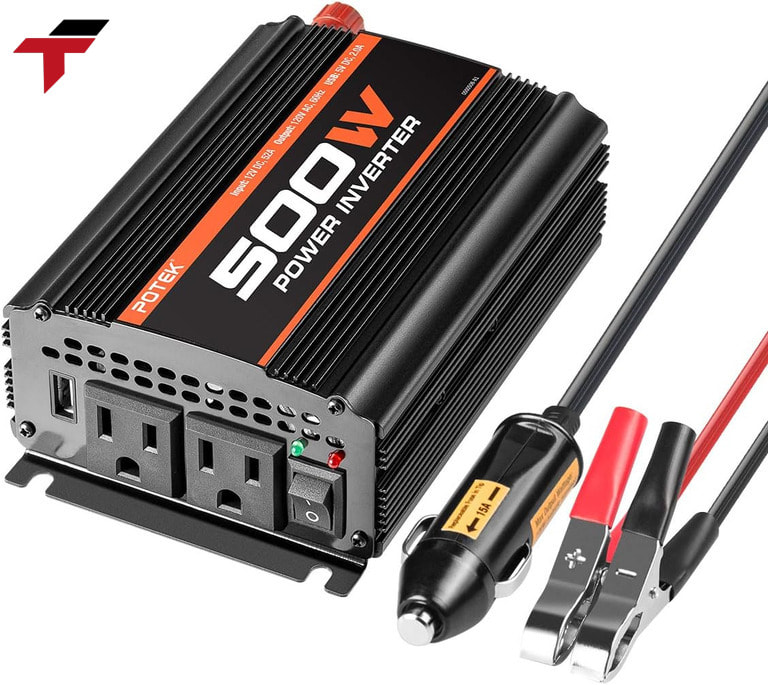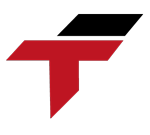In the era of technology 4.0, the electricity demand is increasing. Inverters have become an indispensable component in meeting the diversity of applications, from home to industry. So, what is an inverter? Why do they play such an important role? Let’s explore the details in this article.
What is an Inverter?
An inverter is a device that converts direct current (DC) to alternating current (AC). DC is commonly found in power sources such as batteries, accumulators, or solar power systems, while AC is widely used in household and industrial electrical appliances.
An inverter receives input DC, converts it to AC, and adjusts the frequency and amplitude of the output current to suit the needs of use.
In particular, an inverter can also control motor speed, helping devices and machines operate more efficiently, and minimizing energy waste.

Introduction to Inverter
Common Types of Inverters
Many different types of inverters are on the market today, each suitable for different applications. Here are three common types of inverters you need to know:
Square Wave Inverter:
This is the simplest and lowest cost type of inverter. However, its output waveform is square wave, which is not completely stable and can hurt sensitive electronic devices. This type of inverter is suitable for devices that do not require high precision in power supply.
Modified Sine Wave Inverter:
This type of inverter is commonly used in civil applications, such as household appliances. It produces an imperfect sine wave, but can still supply power to basic devices.
Although it is not as efficient as a standard sine wave inverter, it is cheaper and still meets the needs of normal use.
Pure Sine Wave Inverter:
This is the most advanced type of inverter with optimal performance. Its electric wave is very smooth and similar to the electric wave from the power plant grid. This helps it provide stable power, good protection for sensitive electronic devices, minimize wear and increase the life of the device.
Pure sine wave inverter is used in solar power systems, industrial machinery, and devices that require high efficiency.

How many types of inverters are there?
What benefits does an Inverter bring to businesses?
Using an Inverter brings many benefits not only to businesses but also to individual consumers. Some notable benefits include:
- Flexible power conversion: Inverters are capable of converting direct current (DC) from backup power sources or renewable energy (such as solar panels, and storage batteries) to alternating current (AC), suitable for use in household and industrial electrical equipment.
- Energy Saving: Inverters help regulate the current to optimize energy efficiency, thereby reducing electricity consumption.
- Equipment Protection: Inverters help minimize overload and protect equipment from damage due to unstable currents.
- Reduced Operating Costs: Using an Inverter helps reduce energy costs in industrial systems, especially in energy-consuming machines.
- Environmental Friendly: Energy savings help reduce CO2 emissions, contributing to environmental protection.
Notes when choosing to buy an Inverter
When choosing to buy an Inverter, you need to pay attention to the following factors to ensure suitability and efficiency:
- Capacity: Determine the capacity of the Inverter to suit your needs. The Inverter capacity must be large enough to supply power to all devices in the system.
- Sine Wave Type: Choose the right sine wave type for the device that needs power. If you use sensitive electronic devices, choose a standard sine wave Inverter.
- Brand: Choose reputable brands that ensure quality and have a good warranty.
- Features: Some modern Inverters have features such as control via mobile applications, performance monitoring, and overload protection, you should consider these features when buying.

Things to note when buying an Inverter
Inverter Applications
Inverters are an indispensable component in many fields, from industrial to civil. Below are typical and important applications of Inverters:
- Industry: One of the most important applications of Inverters is to control motor speed. Instead of having to use fixed-speed motors, Inverters help to adjust the speed of the motor flexibly, suitable for the requirements of each production stage.
- Solar Energy Systems: Inverters are an important component in solar energy systems. They convert DC power from solar panels into AC power that can be used for home appliances.
- Home Appliances: Devices such as air conditioners, refrigerators, and other home appliances also use Inverters to optimize performance and save energy.
- Medical: Inverters help convert energy from backup power sources (such as batteries or solar power systems) into alternating current (AC), providing power to devices such as ventilators, dialysis machines, X-ray machines, etc. in the event of a sudden power outage.
How much does an Inverter cost?
Currently, the price of an inverter ranges from $200-$1000 depending on a few factors:
- Capacity: The larger the capacity, the higher the price of the inverter. For example: Inverters used for household appliances are usually cheaper than inverters used in industry.
- Brand: Reputable brands such as ABB, Schneider Electric, Delta, Mitsubishi or Siemens are often more expensive than products of unknown origin.
- Application: Inverters used for renewable energy or heavy industry are often more expensive than household appliances due to performance and durability requirements.
The above prices are for reference only. You should check with genuine suppliers or dealers to know the exact price according to your specific needs.

Inverter expensive or cheap?
Conclusion
Inverters are a versatile technology that is not limited to a specific field but also plays an important role in many different industries. Using inverters helps optimize performance, save energy, and ensure safety in production activities.
The continuous development of inverter technology continues to open up many new applications and promises to make great contributions to the development of society.
